Hardened Hearted Divorce and The Parable of Me, Myself and I.
 I swear to God, no, I mean I am inspired by God when I read His Word, it freaks me out a little bit when He sends me what I (and others) call Godsends. Not really freak me out but connects in a very special way. In the New Testament I basically read two pages a day from my Bible or in this case two chapters in Matthew. In each segment I probably (and may very well year-after-year) could write ten stories about my life and my reaction to the written Word.
I swear to God, no, I mean I am inspired by God when I read His Word, it freaks me out a little bit when He sends me what I (and others) call Godsends. Not really freak me out but connects in a very special way. In the New Testament I basically read two pages a day from my Bible or in this case two chapters in Matthew. In each segment I probably (and may very well year-after-year) could write ten stories about my life and my reaction to the written Word.
I have been divorced for ten years and the impact of that divorce, spiritually, mentally, emotionally and even physically has been on my mind off-and-of, in passing and sometimes with staying power over those ten years. Never once did I think about it in terms of the hardening of my heart as written in the Word:
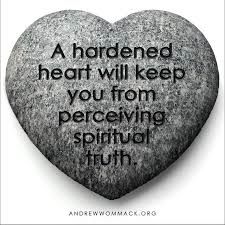 “Because Moses, by reason of the hardness of your heart, permitted you to put away your wives; but it was not so from the beginning…”
“Because Moses, by reason of the hardness of your heart, permitted you to put away your wives; but it was not so from the beginning…”
By reason of the hardness of my heart is the reason that I divorced my wife of 25 years. It was a selfish, senseless and egotistical of me to do so. It was a childish thing to do so and quite frankly even at the age of 47 I was still thinking and reacting as a child and not the right type of child that gets you into heaven but the self-centered child that is all me, me,me. I felt abandoned and lacking trust I did not have the honesty or skills to work through that difficult time. I can entertain you with a whole bunch of rationalizations, justifications and denial but they are all a fabrication of the truth which is I did not thoroughly know, accept or love myself or God or any other human being. Sometimes it is hard to look in the mirror and see what is really there.
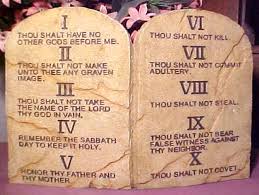 Interesting that the first mention of the Ten Commandments in the New Testament in Matthew lists only five, incorrectly includes the Golden Rule as one, and leaves out five! I know the Bible can never be “incorrect” so it must be my interpretation or a function of time or place or both and a matter on application? Check out the notes below for full disclosure of my error.
Interesting that the first mention of the Ten Commandments in the New Testament in Matthew lists only five, incorrectly includes the Golden Rule as one, and leaves out five! I know the Bible can never be “incorrect” so it must be my interpretation or a function of time or place or both and a matter on application? Check out the notes below for full disclosure of my error.
The parable of the laborers in the vineyard hit home with me in a more impactful manner than ever before.
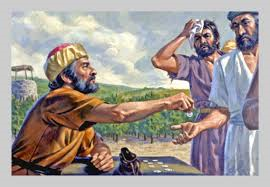 “For the kingdom of heaven is like a householder who went out early in the morning to hire laborers for his vineyard… denarius a day… the third hour… go you also into the vineyard and I will give you whatever is just… the sixth and the ninth hour… the eleventh hour… evening had come.. pay them their wages, beginning from the last even to the first… each received a denarius… they thought they would receive more… these last have worked a single hour (twelve hour work days?)… Friend, I do thee no injustice; didst thou not agree with me for a denarius?… Take what is thine and go… Have I not a right to do what I choose?… Or art thou envious because I am generous?… Even so the last shall be first, and the first shall be last; for many are called, but few are chosen…”
“For the kingdom of heaven is like a householder who went out early in the morning to hire laborers for his vineyard… denarius a day… the third hour… go you also into the vineyard and I will give you whatever is just… the sixth and the ninth hour… the eleventh hour… evening had come.. pay them their wages, beginning from the last even to the first… each received a denarius… they thought they would receive more… these last have worked a single hour (twelve hour work days?)… Friend, I do thee no injustice; didst thou not agree with me for a denarius?… Take what is thine and go… Have I not a right to do what I choose?… Or art thou envious because I am generous?… Even so the last shall be first, and the first shall be last; for many are called, but few are chosen…”
Or art thou envious because I am generous?
Or am I jealous because others have more than me?
 Am I comparing my insides to their outsides? What about my outside to their insides? Aren’t our insides, out thoughts, fears, resentments, lies and selfish ego all basically the same but only different in the way they get us into trouble (sin)?
Am I comparing my insides to their outsides? What about my outside to their insides? Aren’t our insides, out thoughts, fears, resentments, lies and selfish ego all basically the same but only different in the way they get us into trouble (sin)?
And for some reason I ended reading that passage the way it started and concluded with “for the kingdom of heaven is like…”—this!
Why do we compare? Or judge? Or compare ourselves to perfection? Oh that not so silent at times inner critical voice. Or see the world, others, ourselves and even God in this all-or-nothing manner of thinking?
Silly little sinful human beings are we.
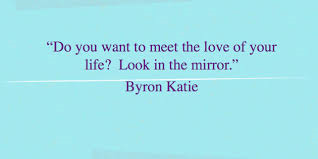 My God is compassionate, accepting and loving of me!
My God is compassionate, accepting and loving of me!
I in turn am compassionate, accepting and loving of myself.
And through this awareness, this state of mind, this state of being, I am compassionate, accepting, and loving of every other human being and all of humanity in general terms.
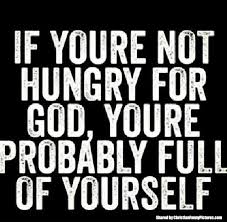 Except when I am not.
Except when I am not.
Like the day I decided to get divorced.
Or the moment I choose to compulsively binge eat or feed my sugar addiction.
At those times, I abandon myself, my God and the world.
Silly little sinful human being am I.

Day 20: Reading The Bible with a TROML Perspective; Hardened Hearted Divorce and The Parable of Me, Myself & I.
Read and inspired by the New Testament, The Gospel of Saint Matthew Chapters 19-20.
Bible Notes:
The Holy Gospel of Jesus Christ according to Saint Matthew
Saint Matthew, also known as Levi, was a Galilean by birth.
Tax Collector at Capharnaum
Christ called him to become a disciple, and later an Apostle
After the Holy Ghost came down on the Apostles on Pentecost, Matthew preached the Gospel in Judea.
He wrote his Gospel to prove to his readers that Christ was the Messiah foretold by God in the Old Testament
Matthew Chapter 19: Christ travels to Judea; The question of divorce; Continence preferred to marriage; Jesus blesses the children; The rich young man speaks to Jesus; The danger of riches; A hundredfold reward promised.
Jesus departed from Galilee and came to the district of Judea beyond the Jordan.
Is it lawful for a man to put away his wife for any cause? Pharisees testing Jesus.
“For this cause a man shall leave his father and mother and cleave to his wife, and the two shall become one flesh. Therefore now they are no longer two, but one flesh. What therefore God has joined together, let no man put asunder.”
Asunder—into separate parts; in or into pieces; apart or widely separated.
Why then did Moses command to give a written notice of dismissal and to put her away?
“Because Moses, by reason of the hardness of your heart, permitted you to put away your wives; but it was not so from the beginning. And I say to you, that whoever puts away his wife, except for immorality, and marries another, commits adultery; and he who marries a woman who has been put away commits adultery.”
If the case of a man with his wife is so, it is not expedient to marry.
“Not all can accept this teaching; but those to whom it has been given… Let him accept it who can.”
Eunuchs—a castrated man, especially one formerly employed by rulers in the Middle East and Asia as a harem guard or palace official.
That he may lay his hands on them…
“Let the little children be, and do not hinder then from coming to me, for of such is the kingdom of heaven.”
“Good Master, what good work shall I do to have eternal life?”
“One there is who is good, and he is God. But if thou wilt enter into life, keep the commandments.”
Which (commandments)?
Thou shalt not kill.
Thou shalt not commit adultery.
Thou shalt not steal.
Thou shalt not bear false witness.
Honor thy father and mother.
Thou shalt love thy neighbors as thyself (Golden Rule???)
Missing: You shall have no other gods before me.
Missing: You shall not make for yourself a graven image…
Missing: You shall not take the name of the Lord your God in vain…
Missing: You shall not bear false witness against your neighbor.
Missing: You shall not covet your neighbor’s wife…
Ten Commandments, also called Decalogue (Greek: deka logoi [“10 words”]), list of religious precepts that, according to various passages in Exodus and Deuteronomy, were divinely revealed to Moses on Mt. Sinai and were engraved on two tablets of stone. The Commandments are recorded virtually identically in Ex. 20: 2–17 and Deut. 5: 6–21. The rendering in Exodus (Revised Standard Version) appears as follows:
I am the Lord your God, who brought you out of the land of Egypt, out of the house of bondage.
- You shall have no other gods before me.
- You shall not make for yourself a graven image, or any likeness of anything that is in heaven above, or that is in the earth beneath, or that is in the water under the earth; you shall not bow down to them or serve them; for I the Lord your God am a jealous God, visiting the iniquity of the fathers upon the children to the third and the fourth generation of those who hate me, but showing steadfast love to thousands of those who love me and keep my commandments.
- You shall not take the name of the Lord your God in vain; for the Lord will not hold him guiltless who takes his name in vain.
- Remember the Sabbath day, to keep it holy. Six days you shall labor, and do all your work; but the seventh day is a Sabbath to the Lord your God; in it you shall not do any work, you, or your son, or your daughter, your manservant, or your maidservant, or your cattle, or the sojourner who is within your gates; for in six days the Lord made heaven and earth, the sea, and all that is in them, and rested the seventh day; therefore the Lord blessed the Sabbath day and hallowed it.
- Honor your father and your mother, that your days may be long in the land which the Lord your God gives you.
- You shall not kill.
- You shall not commit adultery.
- You shall not steal.
- You shall not bear false witness against your neighbor.
- You shall not covet your neighbor’s wife, or his manservant, or his maidservant, or his ox, or his ass, or anything that is your neighbor’s.
“If thou wilt be perfect, go, sell what thou hast, and give to the poor, and thou shalt have treasure in heaven; and come, follow me.”
“It is easier for a camel to pass through the eye of a needle, than for a rich man to enter the kingdom of heaven.”
Who then can be saved?
“With men this is impossible, but with God all things are possible.”
“Behold, we have left all and followed thee; what then shall we have?
“Amen, I say to you that you who have followed me, in the regeneration when the Son of Man shall sit on the throne of His glory… And everyone… for my name’s sake, shall receive a hundredfold, and shall possess life everlasting. But many who are first now will be last, and many who are last now will be first.”
Matthew Chapter 20: Parable of the laborers in the vineyard; The third prediction of the passion: The mother of James and John; Humility according to Christ’s example; The blind man at Jericho.
For the kingdom of heaven is like a householder who went out early in the morning to hire laborers for his vineyard… denarius a day… the third hour… go you also into the vineyard and I will give you whatever is just… the sixth and the ninth hour… the eleventh hour… evening had come.. pay them their wages, beginning from the last even to the first… each received a denarius… they thought they would receive more… these last have worked a single hour (twelve hour work days?)… Friend, I do thee no injustice; didst thou not agree with me for a denarius?… Take what is thine and go… Have I not a right to do what I choose?… Or art thou envious because I am generous?… Even so the last shall be first, and the first shall be last; for many are called, but few are chosen… For the kingdom of heaven is like
Gentiles—a person who is not Jewish, especially a Christian; (among Mormons) a person who is not a Mormon; a heathen or pagan.
”What does thou want?”
Command that these my two sons (James and John) may sit, one at thy right hand and one at thy left hand, in thy kingdom.
“You do not know what you are asking for. Can you drink of the cup of which I am about to drink?”
We can.
“Of my cup you shall indeed drink… that is not mine to give you, but it belongs to those for whom it has been prepared by my Father.”
It is also a placement next to God in Heaven, in the traditional place of honor, mentioned in the New Testament as the place of Christ at Mark 16:19, Luke 22:69, Matthew 22:44 and 26:64, Acts 2:34 and 7:55, 1 Peter 3:22 and elsewhere. These uses reflect use of the phrase in the Old Testament, for example in Psalms 63:8 and 110:1. In the Bible, to be at the right side “is to be identified as being in the special place of honor”. In Jesus’ The Sheep and the Goats, the sheep and goats are separated with the sheep on the right hand of God and the goats on the left hand.
We are not told anything about who might be at the left hand.
“Whoever wishes to be great among you shall be your servant and whoever wishes to be first among you shall be your slave; even as the Son of Man has not come to be served but to serve, and to give his life as a ransom for many.”
Lord, son of David, have mercy on us!
“What will you have me do for you?”
Lord, that our eyes be open.
And Jesus moved with compassion for them, touched their eyes; and at once they received their sight, and followed him.

Speak Your Mind